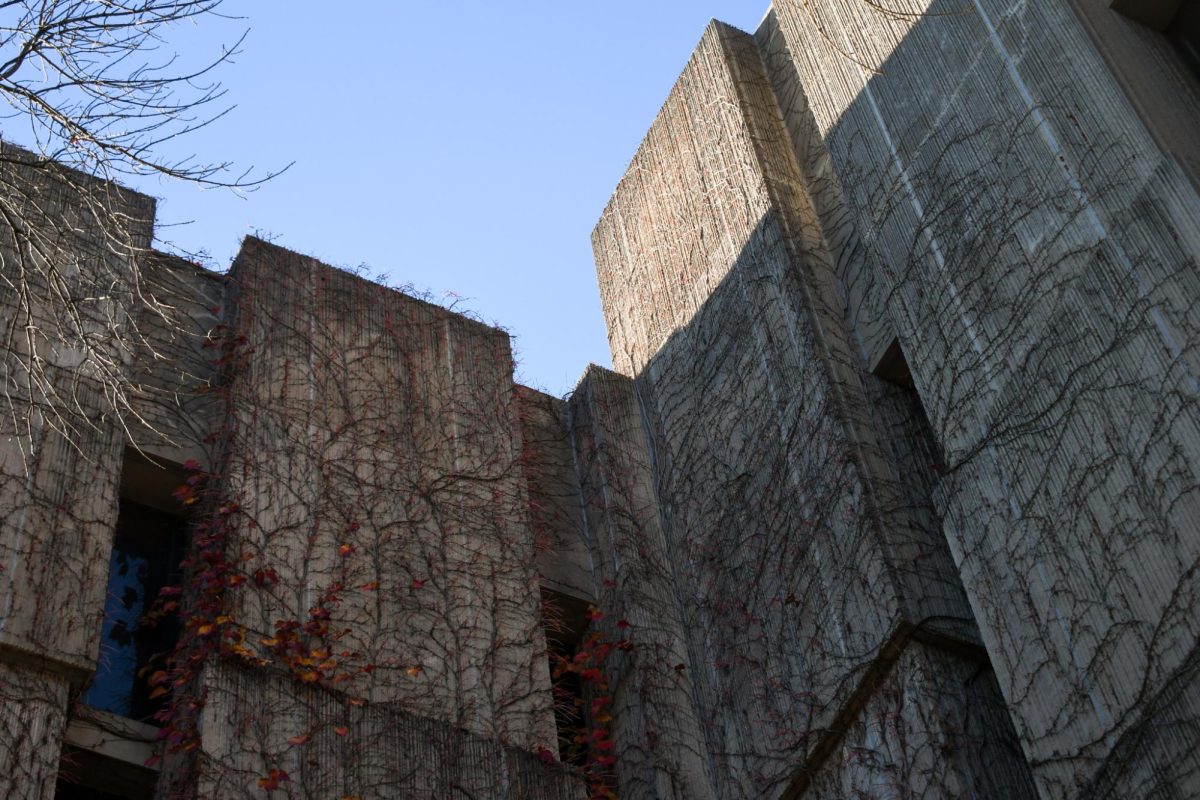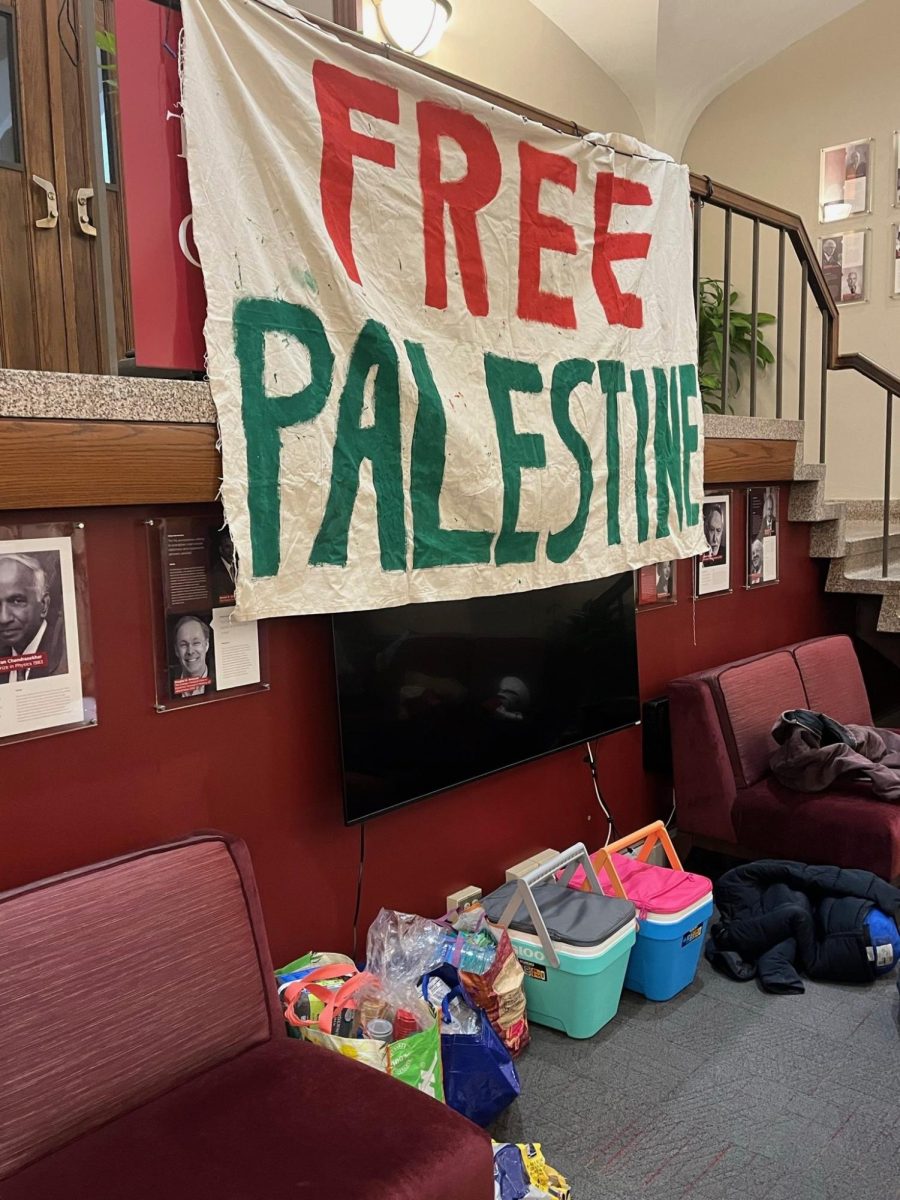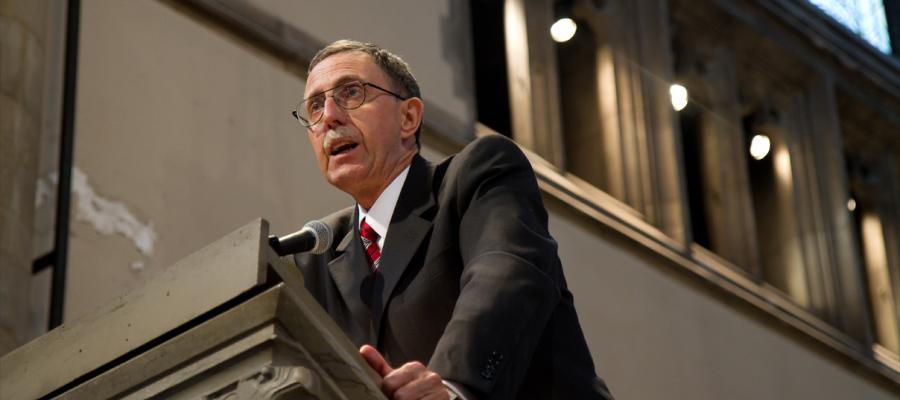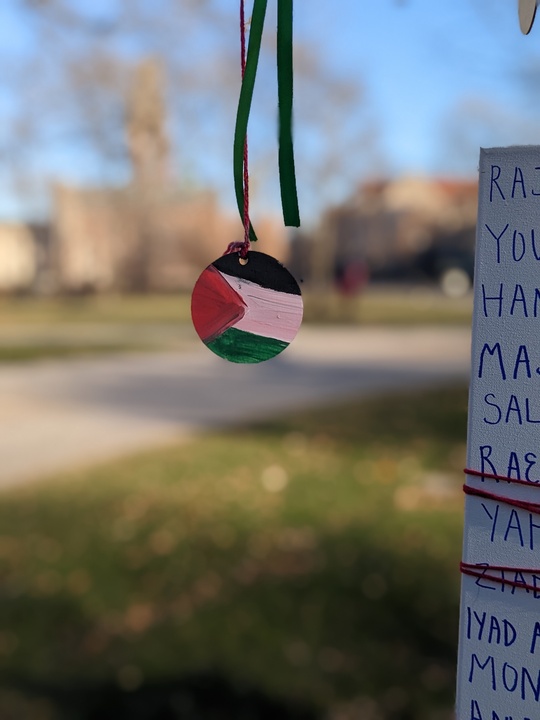We, the undersigned students, write to address the recent controversy over Rachel Fulton Brown’s February 16 article in Sightings. We welcome commitments made by our administration and faculty to defend students genuinely threatened by harassment. However, we are compelled to contextualize Fulton Brown’s argument in our current political climate and wish to insist on further concrete actions from the Divinity School moving forward. These actions must cultivate an environment where all students are free not merely to express themselves but to exist as they are. No institution can thrive while significant portions of its population are at risk of being marked, targeted, threatened, or silenced.
The publication of Fulton Brown’s article must be understood in its proper context: the escalation of bigotry and its violent effects, both locally and nationally. In fact, the central ideas Fulton Brown relates in her essay resonate with and act as means of harassment and recruitment common to the informal coalition of the self-identified alt-right. The correlations are straightforward. Her praise for Yiannopoulos amplifies his antipathy to trans students and has welcomed threatening anti-trans flyering on our campus by white nationalists. Her selective valorization of European history along with her critiques of the modern academy and so-called multicultural Marxism aligns with the platform of another recently active white nationalist organization. One need not establish whether or not Fulton Brown supports or collaborates with these groups, given the bare ideological similitude. What remains essential is the welcome offered to such individuals and organizations by national politics, University policy, and Sightings editorial standards. Unwittingly or otherwise, the publication of Fulton Brown’s article has provided a platform for the proliferation and mobilization of white supremacy, nativism, and patriarchal chauvinism.
Various interested parties have made public displays defending this kind of speech by resorting to arguments for “freedom of expression.” We find this line of reasoning disingenuous. The University itself deploys the rhetoric even as it threatens student activism with disciplinary action. Sightings, for its part, deferred to freedom of expression only in response to public critiques, none of which took into account the bodies this article endangered or the inability for the response to uproot the cause of bigotry. In both instances, a highly circumscribed idea of free expression has been deployed selectively and after the fact to dismiss criticism out of hand, to defend discriminatory speech, and to leverage "shared ideals" against anyone who merely expresses opposition to established authorities. Under these conditions, “lively and fearless freedom of debate and deliberation” is impossible.
Freedom of expression cannot exist without freedom of subjects. We take this approach because we firmly believe that students are able to critically assess their ideals and intellectual commitments. Central to Fulton Brown’s critique of the modern academy is her belief that students are passive vessels to be filled by the ideological priorities of their instructors. We reject any characterization of students that assumes we are incapable of discerning the critical quality of arguments. Such characterizations, regardless of whether they come from Fulton Brown, her allies, or her critics, only lend credence to Fulton Brown’s insistence that our rejection of her own particular religious frame is not a practice of discernment but rather an effect of indoctrination. We discern and describe our terrain with analytical categories of race, class, and gender that require capacious critical thinking as well as serious engagement with so-called “politically incorrect” speech, not its avoidance.
Freedom of subjects requires a prior commitment to protecting the physical, emotional, and intellectual security of all people, especially those most concretely and historically threatened: people of color, LGBTQ+, trans, gender non-conforming people, immigrants, undocumented people, women, religious minorities, and people with disabilities. Failure to adhere to these commitments is reflected in the University’s recent Campus Climate Survey, in which students who identify as members of marginalized groups report higher incidence of physical violence, intimidation, discrimination, and harassment. In spite of these facts, University statements have not addressed freedom of subjects, instead focusing on free expression. This preference denigrates the creation of safe spaces and the use of trigger warnings, vital resources both for those who have experienced trauma and for the cultivation of effective educational environments.
Accordingly, we demand that the Divinity School take specific actions to help define the climate and values that we seek to sustain in our shared institution. First, the Diversity Committee at the Divinity School needs to be reformed with official student representation and participation with equal procedural authority.
Second, we request more programing at orientation events to proactively combat current climate issues. Finally, we request annual Divinity School climate surveys with published results and action plans to maintain transparency as we continue to define our institution in the future. With such actions we hope to build the Divinity School as a safe and flourishing environment for all of its students, faculty, and administration.
Sincerely,
Héctor M. Varela Rios Ph.D. student, Theology
William Underwood A.M. student
Sara-Jo Swiatek Ph.D. student, Religious Ethics
Greg Chatterley Ph.D. candidate, Religions in America
Allison Kanner Ph.D. student, Islamic Studies
Kiva Nice-Webb MDiv student
Diane Picio Ph.D. student, Religion, Literature, & Visual Culture
Marielle Harrison Ph.D. student, History of Religions
Ramzi Nimr A.M. student
Foster J. Pinkney Ph.D. student, Religious Ethics
Charlotte Heltai A.M. student
Mendel Kranz Ph.D. student, Philosophy of Religions
Daniel Wyche Ph.D. candidate, Philosophy of Religions
Maryam Sabbaghi Ph.D. student, Islamic Studies
Ernest A. Brooks III A.M. student
Danielle DeLano A.M. student
Nathan J. Hardy Ph.D. student, History of Christianity
David J. Cohen Ph.D. student, History of Judaism
Elizabeth Sartell Ph.D. student, Islamic Studies
Raúl Zegarra Ph.D. student, Theology
Kelly Holob Ph.D. student, Bible
Samantha Pellegrino A.M. student
Alex Matthews Ph.D. student, Islamic Studies
Olivia Bustion Ph.D. student, Theology
Shelly Tilton A.M. student
Aslan Cohen Mizrahi Ph.D. candidate, Hebrew Bible
Judith Guy MDiv student
Claire Hautot Ph.D. student, Religions in America
Matthew Peterson Ph.D. student, Philosophy of Religions
Caroline Anglim Ph.D. student, Religious Ethics
Miriam Attia Ph.D. student, Religious Ethics
Miriam Bilsker Ph.D. student, History of Judaism
Chelsea Cornelius MDiv student
Timothy Gutmann Ph.D. candidate, Islamic studies
Erin Simmonds A.M. student
Juliana Locke A.M. student
Samuel Stella A.M. student
A. Tonks Lynch MDiv student
Myung-Sahm Suh Ph.D. candidate, Anthropology & Sociology of Religion
Seth Auster-Rosen Ph.D. student, Philosophy of Religions
Keri Anderson MDiv student
Sara Lytle MDiv student
Sarah Lusche MDiv student
RL Watson Ph.D. candidate, Religion and Literature
Hannah Roh Ph.D. candidate, Philosophy of Religions
Annemarie Kalson MDiv student
Rachel Carbonara Ph.D. student, Anthropology and Sociology of Religion
Andrew Kunze Ph.D. student, Anthropology of Religion
Vinicius Marinho Ph.D. student, Theology
Russell Johnson Ph.D. candidate, Philosophy of Religions
Virginia White MDiv student
Gail Goldsmith MDiv
Diego Suarez Rojas A.M. student
W Ezekiel Goggin Ph.D. candidate, Philosophy of Religions
Christina Llanes Ph.D. candidate, History of Christianity
Karl Schmid A.M. ’14







